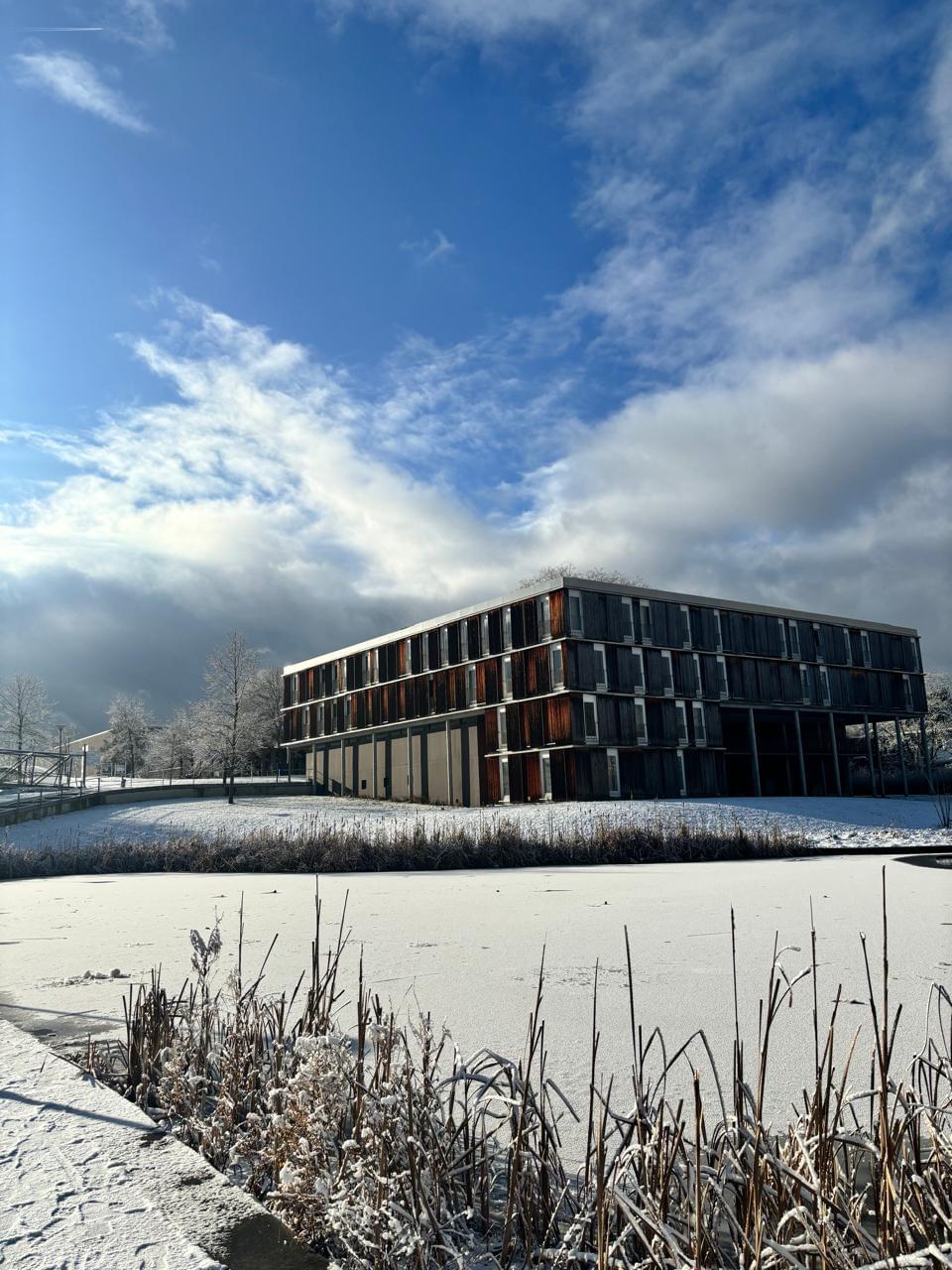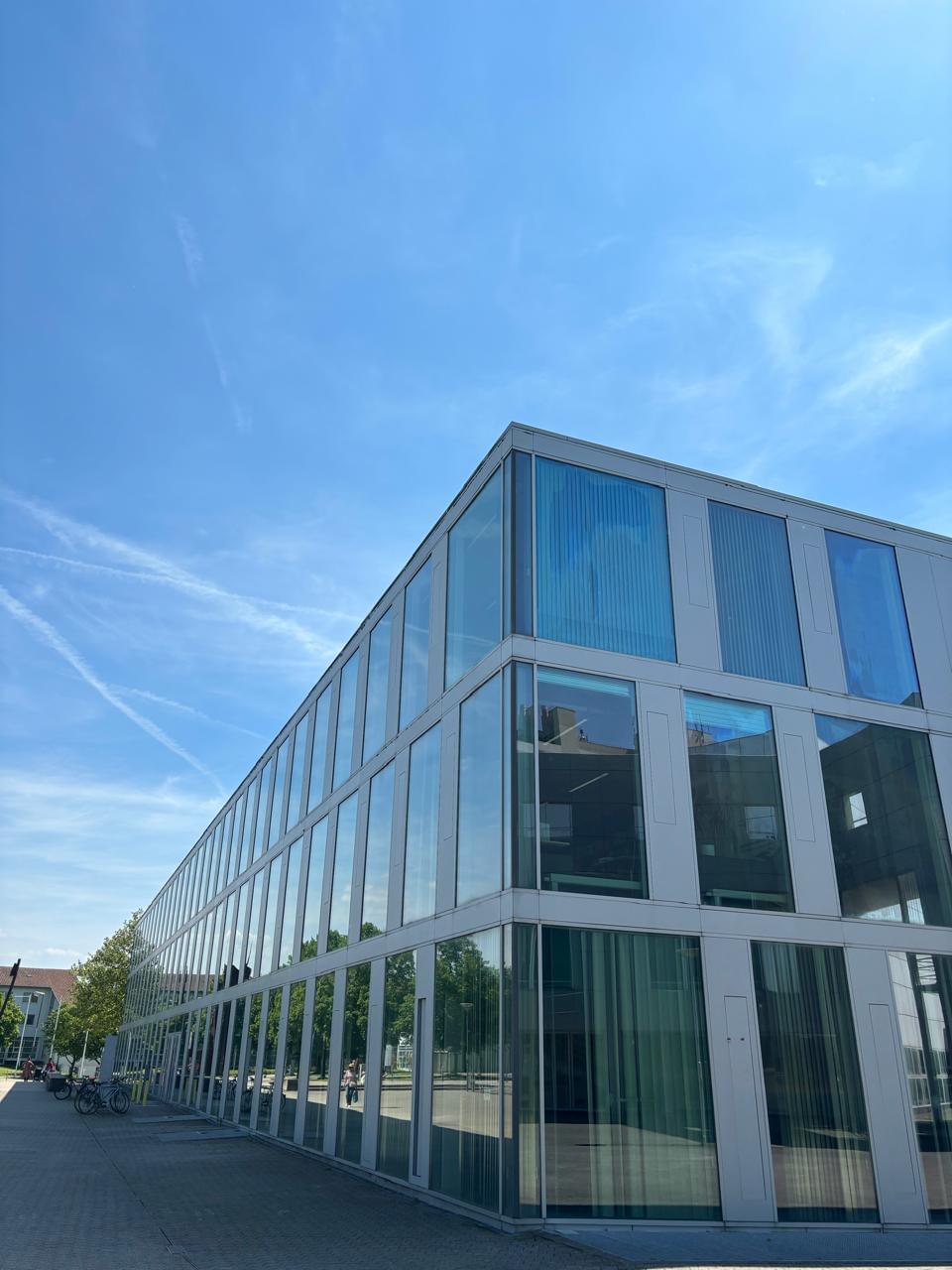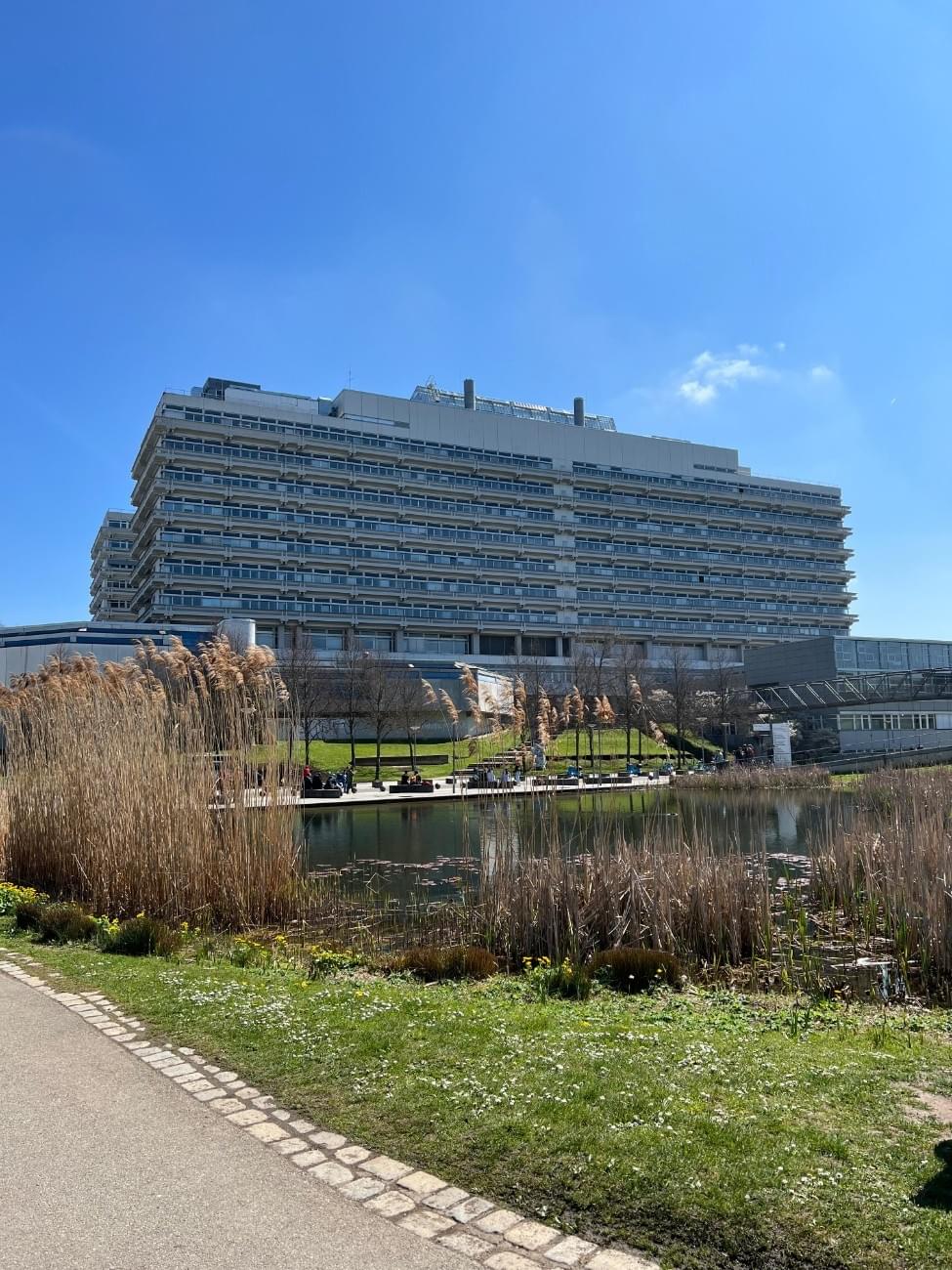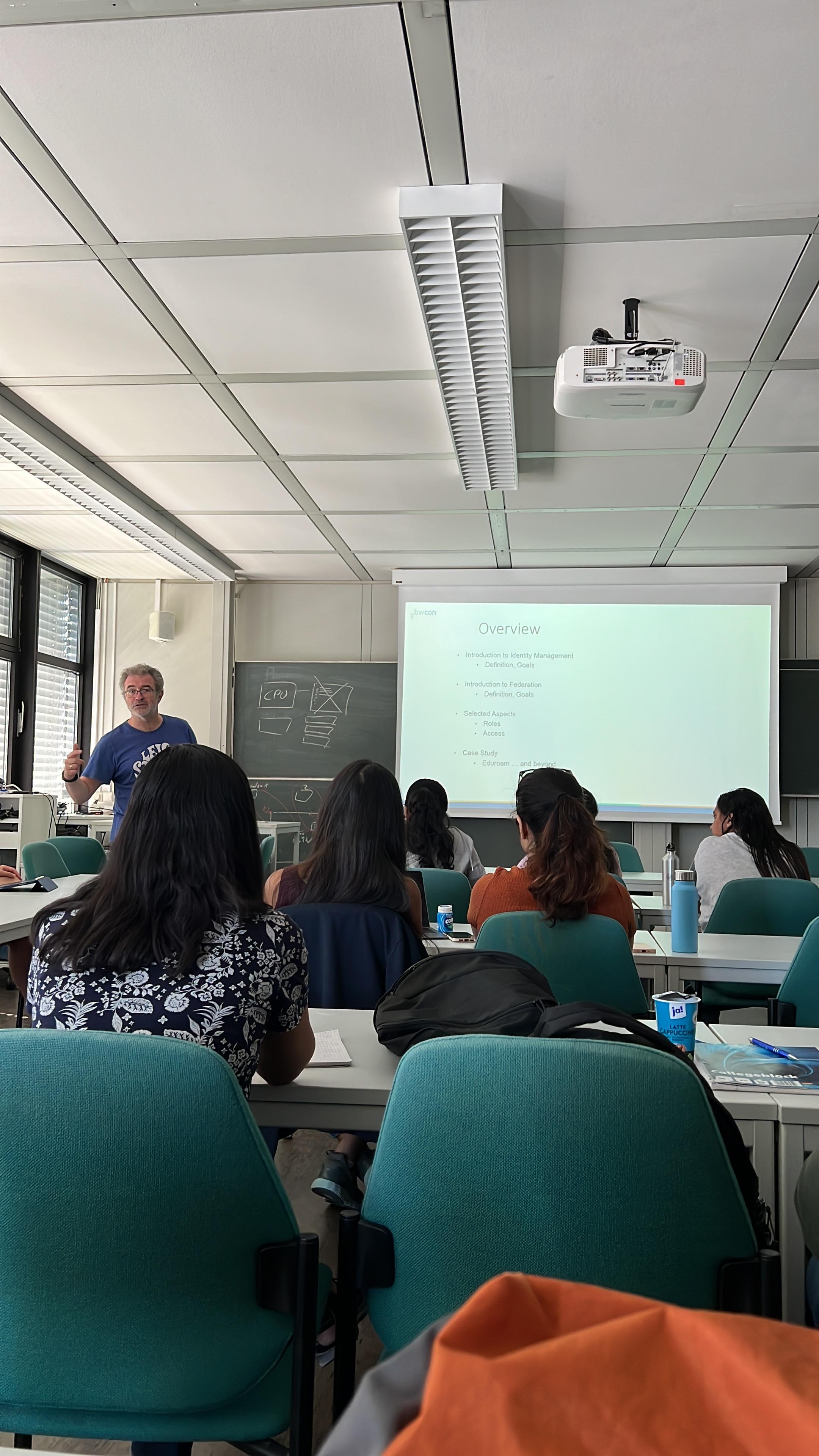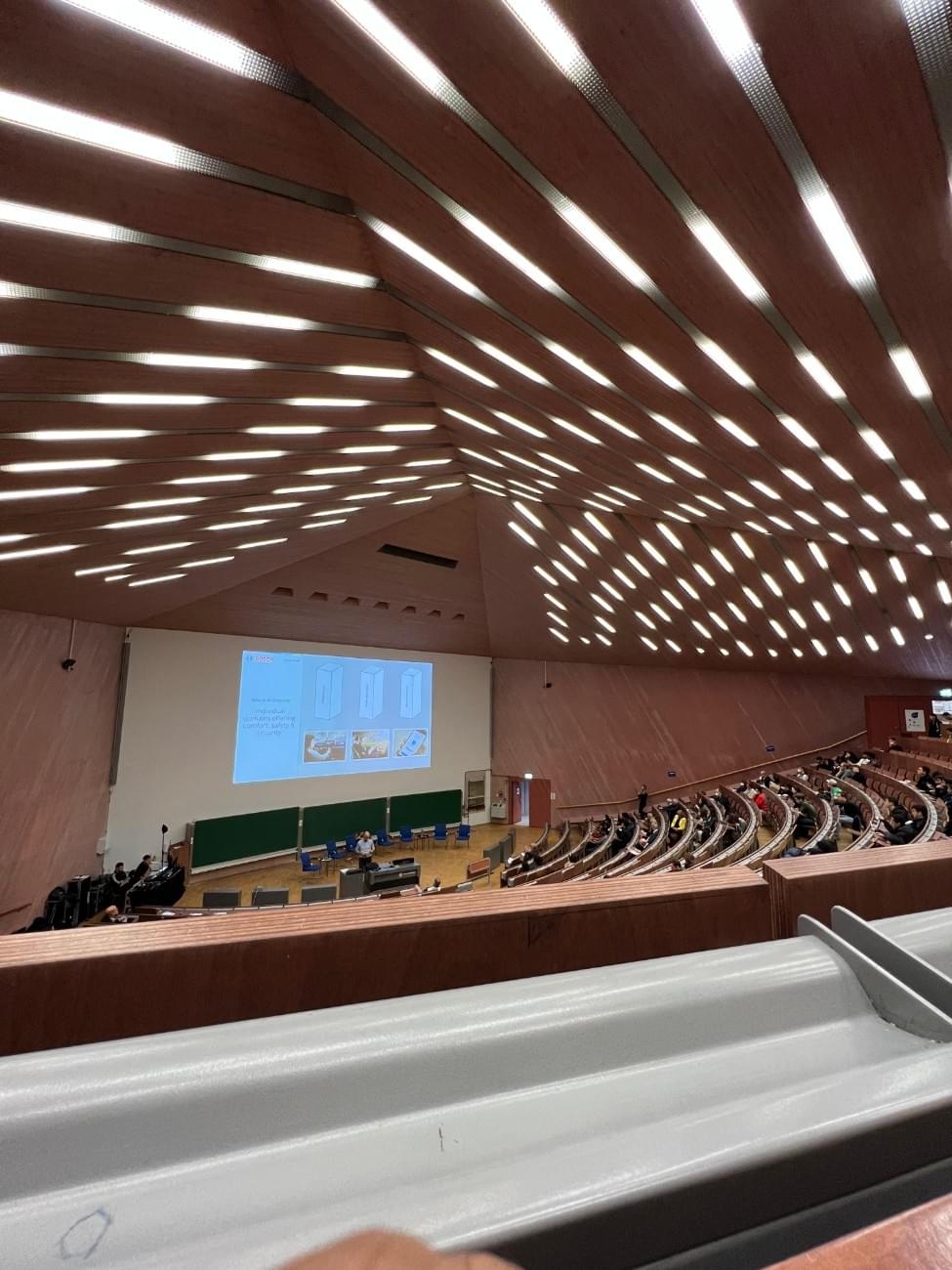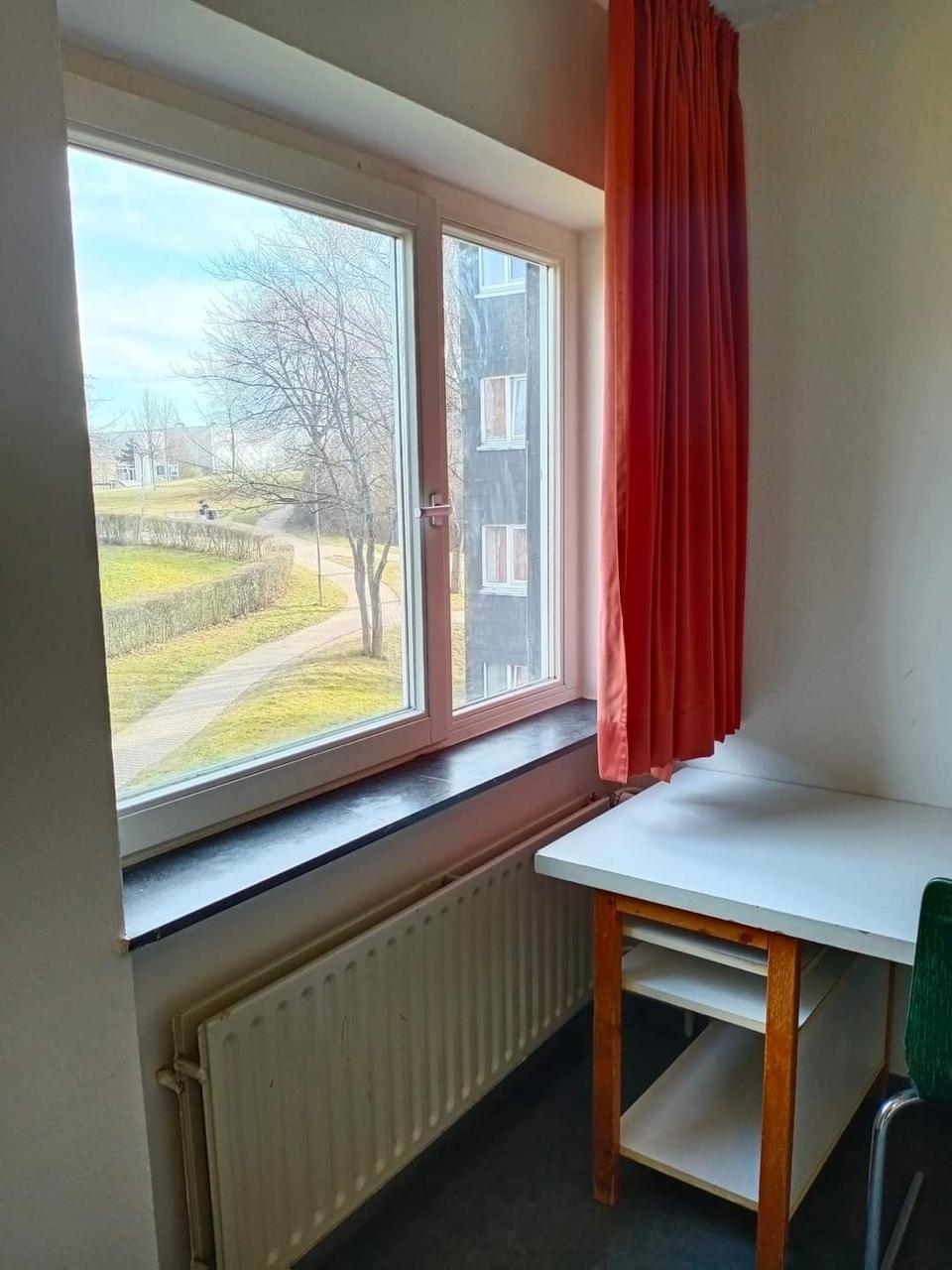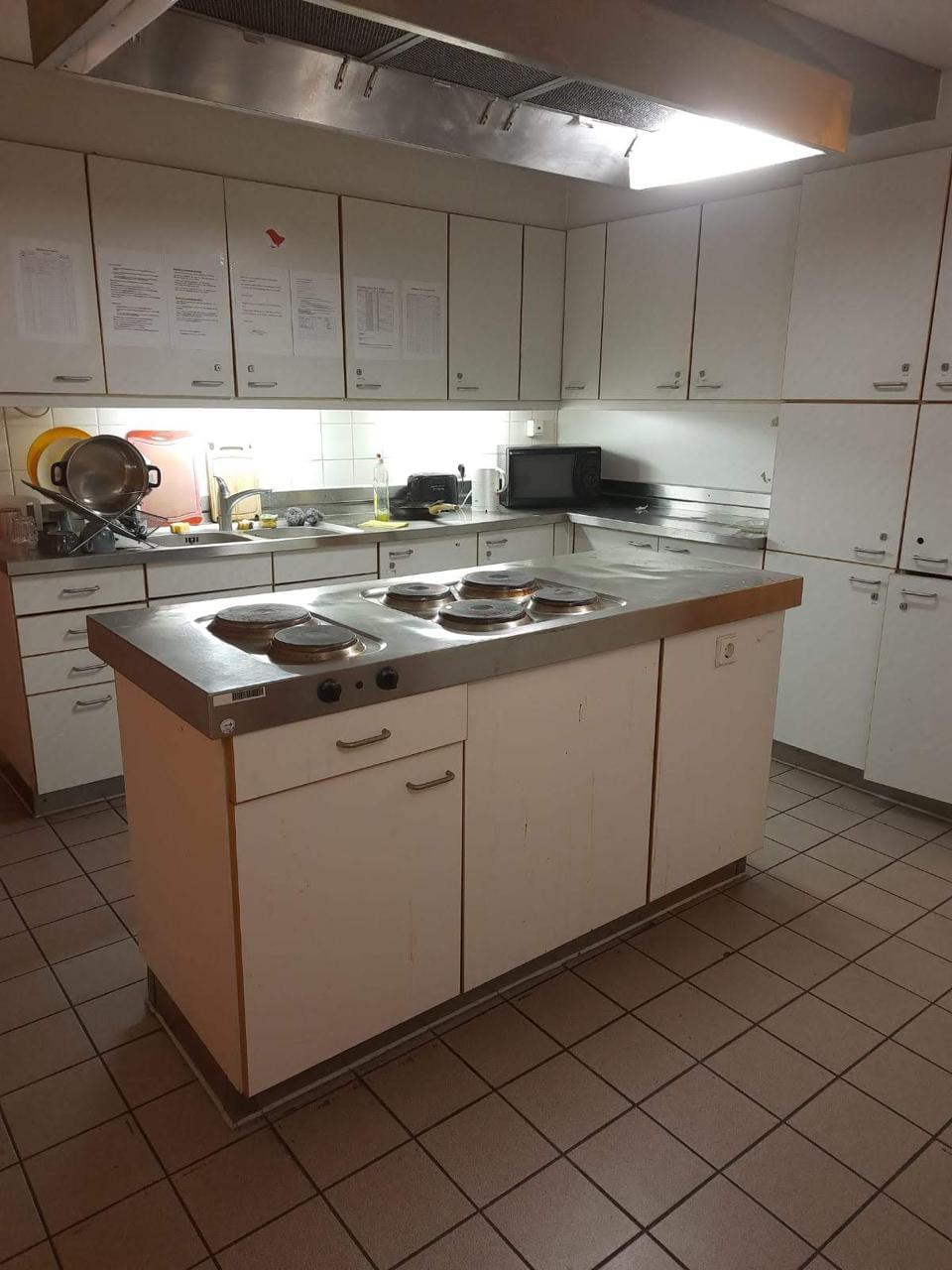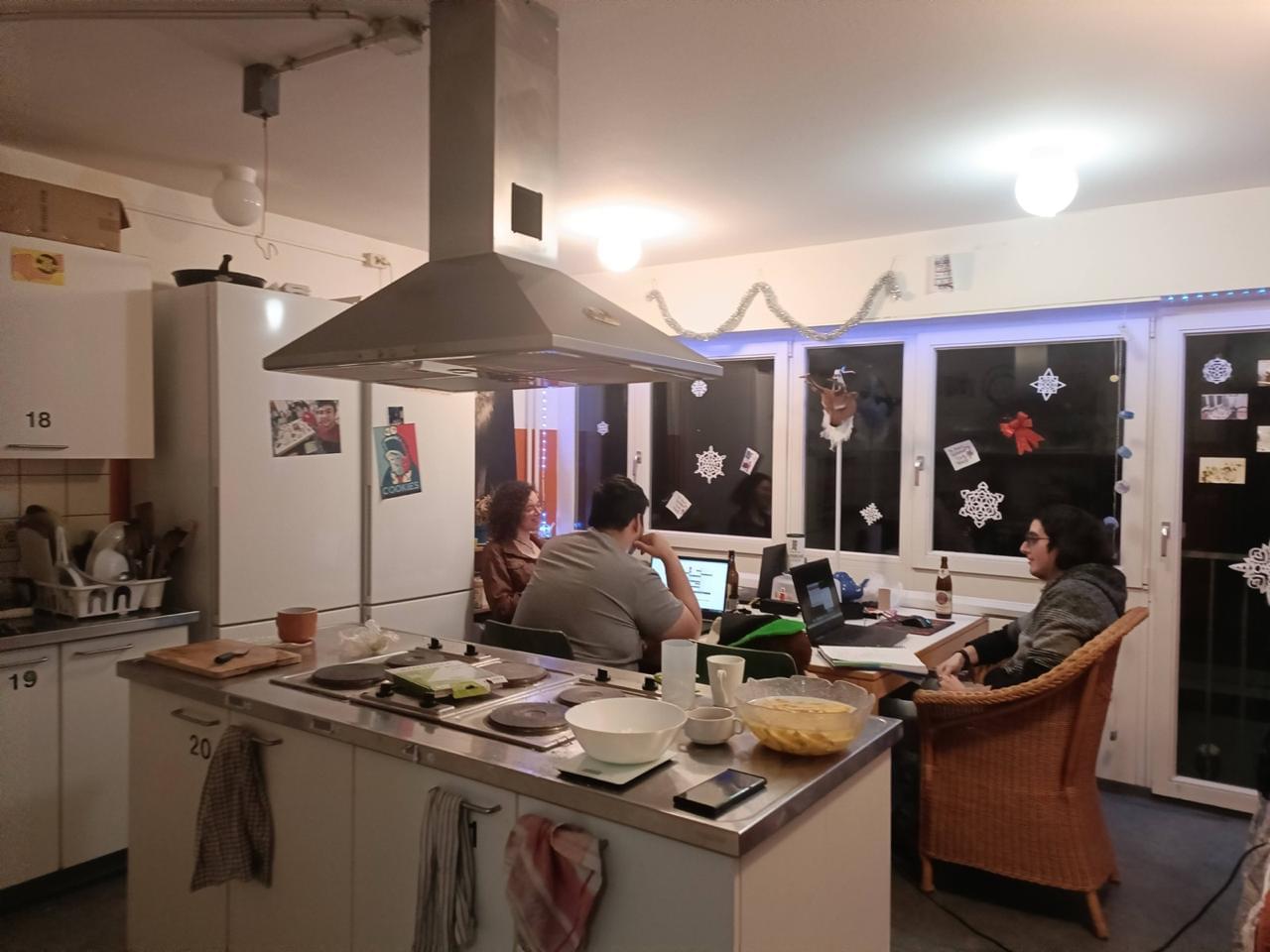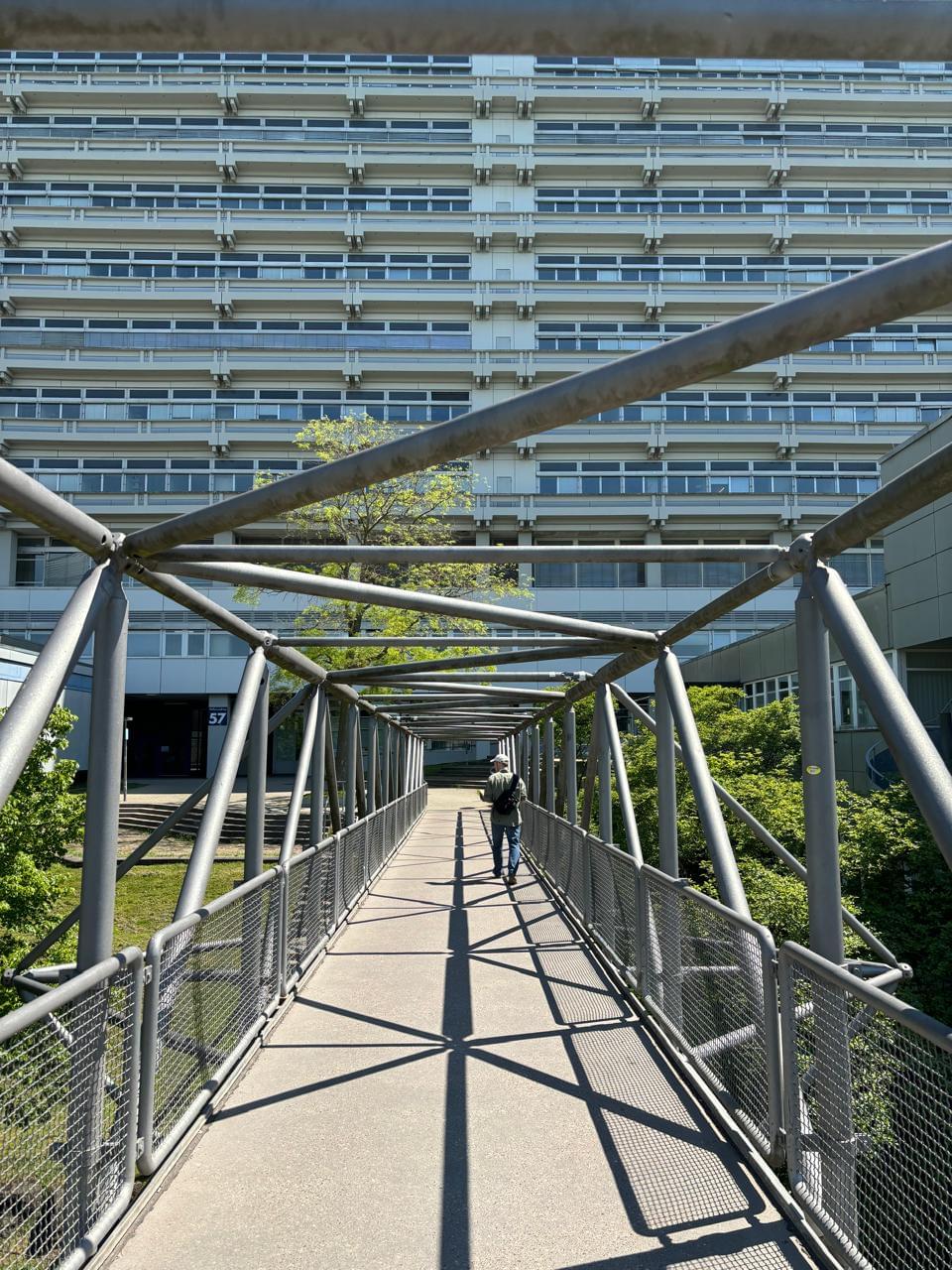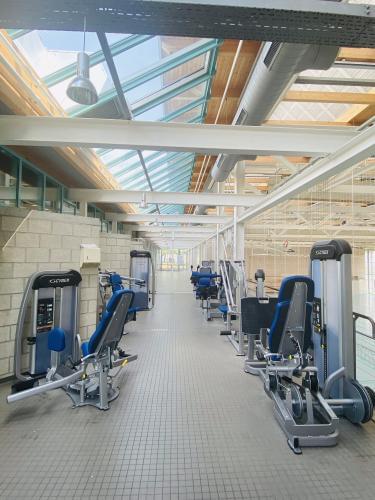What Students Say
Likes
- The University of Stuttgart comes under the TU9 cluster and hence is well recognized.
- I love the balance between city and campus life. The campus is also quite accessible and well-connected to the city center.
- The university has more focus on research and the courses are structured in depth that way. So a lot of opportunities for research and development.
Dislikes
- The cost of living, including accommodation and daily expenses is relatively high here in Stuttgart.
- Finding accommodation can be tough, especially when you’re new – Usually able to get student housing if applied few months before arriving (5-6 months) and the private market in Stuttgart is pretty competitive.
- Some professors rely too much on theory and slides, with less focus on interactive or practical learning.
Required Exams for Admission
Course Curriculum
-
The course curriculum is highly updated and relevant definitely challenging, especially in the first semester. There are many specializations to choose from. The variety of elective courses allows us to tailor the education to our specific interests. There are many practical courses and labs as well which gives opportunities for hands-on learning. The curriculum also has options to do a research project under the guidance of a professor.
-
Mostly theory and research oriented in the beginning , which can feel overwhelming if you’re used to more hands-on learning. especially in electives or specialization modules, it becomes more balanced with practical work, labs, and projects. The level of self-study expected is quite high, and the exams are different from the ones we have in India and might be tough.
-
Positives:
*You get to choose from a wide range of electives upon your interests.
*Strong technical depth – especially in engineering or CS
*Opportunities to work on research or HiWi jobs under professors. -
Negatives:
*Some subjects are little boring due to too much theory.
*You’re expected to seek internships or side projects on your own. The university does not help in this. -
On average, I’d have around 2–3 classes per day, depending on the semester and course load. Classes are usually between 8:00 AM to 6:00 PM, but not all days are packed."
Admission Experience
-
I applied to only 3 colleges:
1. University of Stuttgart (Admitted)
2. University of Saarland (Rejected) and
3. Ludwig-Maximilians University (First step shortlisted but then later rejected) - I received confirmed admission from the University of Stuttgart. I was rejected by the other 2 Universities.
- For Ludwig-Maximilians University, one of their main requirements was professional experience for the program I applied to. I applied right after my bachelor's without any full-time work experience, so that may have played a role in the decision.
- For the University of Saarland , I think the course there is very competitive. They require very high grades to get in. Although I had the grades required, I prominently think that my transcripts were not enough to get into their data science and AI course.
- Firstly, the University of Stuttgart is part of the TU9, which is a group of top technical universities in Germany, so it already has a strong reputation. Secondly, the program structure matched my interests really well – it offered a good balance of core subjects and flexible options to choose specializations and that is what I was looking for.
- Another important reason was the location - Stuttgart is home to large corporations such as Mercedes-Benz, Daimler, Bosch, and Porsche. Being in such an industrial area boosts your chances of securing internships, student employment, and even full-time careers.
- The university is highly regarded in Computer Science and comes under the prestigious TU9 cluster i.e. one the of nine leading technical universities in Germany. They have different specializations and flexible course curriculum with a wide range of options to choose from.
- I had to submit an online application through their portal, along with my bachelor's transcripts, English language proficiency proof, a motivation letter and CV. After submitting the application I had to wait for like 1-2 months and then I got the admission offer. There was no interview or entrance exam for my program.
- For my program, the main eligibility was a relevant bachelor’s degree (usually in engineering, CS, or a related field with required credits). English proficiency was required - Eligibility criteria: IELTS - 7 or TOEFL (minimum around 80-90)
- The overall experience was smooth. The admissions committee was very helpful in case of any doubts or queries. They replied to emails within a week and also provided guidance for accommodation.
- I applied for the Winter intake, which starts in October. For most master's programs at German public universities, especially technical ones like the University of Stuttgart, the primary intake is the winter semester. So basically, they take in more students in the winter sem.
- One big reason for choosing the winter intake was that many courses are only offered in winter. The summer intake options are a little limited. To join the October intake without a gap I applied right after completing my bachelor’s.
-
Admission process:
January: I submitted my application via the C@MPUS portal with all required documents.
March: I received my admission letter via email and on the portal.
April onwards: I began preparing for the visa process, housing, and travel arrangements for the October intake.
Faculty
- Faculty members are highly knowledgeable and approachable, with extensive expertise in their fields. The faculty members are very kind and understanding and can be approached anytime.
- The faculty-to-student ratio can vary depending on the course and the semester, but in general, it's on the higher side, especially in popular master's programs. Some core lectures have over 100 students, while electives and lab-based courses are usually smaller (30) and more interactive. Because of the larger class sizes in the beginning, direct interaction with professors can be limited, but once you get into smaller electives, seminars, or thesis work, it's easier to connect with faculty members. Most professors are open to questions and discussions if you approach them during office hours or after class.
- The teaching style is mostly theoretical and lecture-heavy, especially in core courses. Professors often rely on presentations and academic literature.
- In general, professors don’t actively help with job placements like in some private colleges or business schools. However, if you work under a professor (e.g., as a student research assistant or in a thesis project), they can offer valuable references or connect you to industry contacts in some cases — especially if the project is in collaboration with a company. Also, many departments post internal job openings for HiWi (student assistant) positions, and sometimes professors refer students for those roles.
- There are a few professors I really admire for their clarity in teaching and passion for their subject. Prof. Mathias Niepert has left an incredible impact on me as he taught us two important subjects AI and Reinforcement learning and has incredible knowledge in this field.They make complex topics such as ML, DL, AI much easier to grasp and are always open to discussions after class. What stands out is their real-world experience and how they integrate current research and industry trends into their teaching. It keeps the classes relevant and engaging.
Campus Life
-
The University of Stuttgart provides a lively campus environment with great infrastructure, including research facilities, huge libraries, and robust WiFi. There is also the University Library, Sports Facilities, Canteens (Mensa), Computer Labs & Makerspaces, A variety of clubs and organizations accommodate a range of interests, including engineering groups, cultural clubs, and sports teams.
-
The university hosts frequent events and extracurricular activities like workshops, seminars, job fairs, hikes, and international days creating an active and engaging student life. Additionally, the campus offers top-notch sports facilities which includes different sport clubs and gym.
-
Campus life at the University of Stuttgart is vibrant in its own way — especially once you get involved in student clubs or events. While it’s not as flashy as some private universities, there’s a lot happening if you make the effort to explore.
The University of Stuttgart mainly has two major campuses: Campus Vaihingen and Campus Stadtmitte -
Some popular events and clubs include:
International Festival – Organized by international student communities with food, music, and cultural performances.
Campus Beach Party – Happens during summer
Music & Theater groups – For those into performing arts, there are student-run drama and music clubs as well.
Part Time Jobs
-
On-campus, most common roles are:
1. HiWi (Hilfswissenschaftler) positions – basically research or teaching assistants
2. Lab assistants -
Off-campus, students work in:
1. Cafes, restaurants, or supermarkets
2. Warehouses or delivery jobs
3. Internships or working student jobs - Securing a job really depends on the department and how proactive you are. It is comparatively easy to get a HiWi job as research or teaching assistants at the university. I'd say 40% of students end up getting some kind of HiWi during their studies.
- HiWi jobs generally pay between €12 to €15 per hour, depending on the department.
- As per German law:
- International students are allowed to work 120 full days or 240 half-days per year. That means you can work around 20 hours per week during the semester. During semester breaks, you can work full-time (up to 40 hours per week)
- Getting a job might be challenging at first — mainly because of the language barrier. Many positions also require some basic German skills or prior experience. However, once you're in your second semester and have good grades and built some connections (maybe through classes, professors etc.), it becomes easier to find opportunities.
- Most Indian students work part-time in one of these three categories: 1. On-campus jobs like HiWi (student assistant) roles 2.Off-campus jobs in supermarkets, restaurants, delivery services (like Lieferando), or warehouses. 3. Werkstudent (working student) positions in tech or engineering companies. HiWi/RA/TA positions (on-campus): €12–15 per hour Supermarkets/Restaurants/Delivery (off-campus): €12–13 per hour Werkstudent roles (in companies): €15–20 per hour. In the first semester, it can be a bit challenging, especially if you don’t speak German and are still adjusting.
- After the first few months, once you're more settled and have some academic exposure, it gets easier to find on-campus or field-related jobs. For on-campus jobs, check university portals like C@MPUS, Studierendenwerk, or department notice boards. For off-campus jobs, platforms like Indeed.de, Jobbörse and company websites are helpful. Send your CV and cover letter via email or through online applications. Some restaurant or delivery jobs allow walk-ins too.For HiWi or technical jobs, you may have a short interview with the professor.
Placement
- According to my knowledge,There is no such placement process in Europe but the University arranges job fairs where companies visit the campus and students can interact with them.
- Around 70–80% of students secure a full-time job within 6 months of graduation. For those who start looking early or do an internship/thesis in a company, the chances are even higher. Companies also convert work students/ interns into full time.
- The salary varies depending on the role .The average starting salary depends on the field, job role, and location. It ranges between €50,000 – €70,000 per year.
- Most students find jobs through websites like LinkedIn, StepStone, Indeed, Company Career Pages, Networking, University Job Portals etc.
- Many of my batchmates and seniors have got full time roles in well-known companies like Bosch, Mercedes-Benz/Daimler, Porsche Engineering, Siemens, SAP, Capgemini, etc. These companies offer a range of profiles, particularly in engineering, research, and development roles.
Accommodation
-
There are many facilities including single and shared rooms in university dormitories. The shared ones cost 332 euros per month whereas single rooms cost approximately 360 euros. Apartments outside the university cost around 500-600 euros per month.
-
I opted for on-campus accommodation through VSSW (Verein Stuttgarter Studentenwohnheime) - specifically for students and is quite popular among international students, especially Indians.
-
I applied directly on the VSSW website after getting my admission. My rent at VSSW is €347 per month
-
Facilities:
*A furnished single room
*Shared kitchen and bathroom.
*Heating, electricity, and water bills. -
My accommodation is 10 mins away from the college (walking)
Exams
-
Admission requirements: IELTS: 7, My score - IELTS: 7 - SSC: 94.8% (10th), SSC: 90.46 (12th) Mumbai University : 9.5/10 CGPA (UG) - Requirements: I had to submit an SOP, 2 LoRs, and my current CV in standard European format. Additionally, I also submitted one LoR from the internship that I did.
-
Here’s a list of the documents I submitted for my application:
*Bachelor’s degree certificate and transcripts
*English language test score (IELTS in my case)
*Statement of Purpose (Motivation Letter)
*Curriculum Vitae (CV)
*Copy of passport
*Letter of Recommendation
*Proof of internships or work experience (if relevant)
*APS certificate (for students from certain countries like India, China, Vietnam) -
While writing the SOP you should include reasons for choosing the University, and how the program aligns with your career goals. The CV should include educational qualifications, relevant work experience, technical skills, projects, publications, and extracurricular activities. Whereas LOR should include specific examples demonstrating your dedication, analytical abilities, and potential for success in the chosen program.
-
There was no interview
Fees
-
For international (non-EU) students like me, the tuition fee is €1,500 per semester. In addition to that, there’s a semester contribution of around €200–250, which covers administrative costs, student services etc.
-
Fees are charged semester wise.
-
Here’s a rough breakdown of my monthly living expenses in Stuttgart:
*Rent (student dorm or shared flat): €350 – 450*Health Insurance: €120 - 140
*Groceries and food: €100 - 120
*Public Transport: €30
*Phone & Internet: €20–30
*Other personal expenses (leisure, clothes, etc.): €100
-
So overall, my monthly expenses come to around €700–800, depending on lifestyle and housing.
Scholarship
- The University of Stuttgart does not typically offer scholarships for degree studies. However, international students can explore external funding opportunities such as German Academic Exchange Service (DAAD) scholarships and Deutschlandstipendium.
- I did not receive any scholarships during my studies. However, some of my peers were awarded the Deutschlandstipendium. The Deutschlandstipendium provides students with €300 per month.
- At the University of Stuttgart, approximately 161 Deutschlandstipendium scholarships are awarded annually. Each scholarship amounts to €300 per month.


